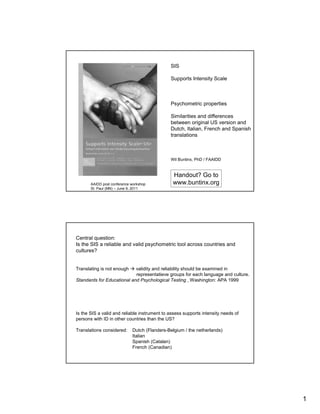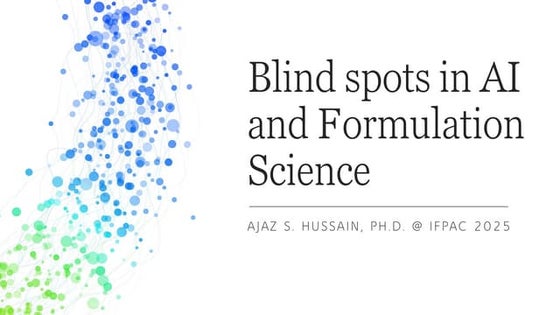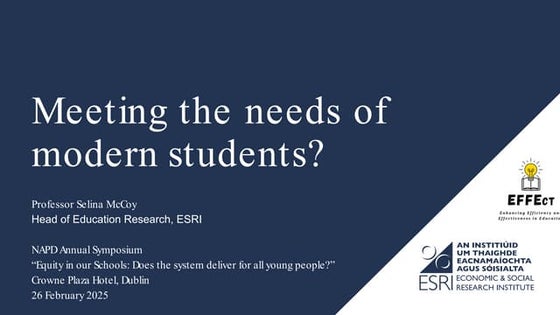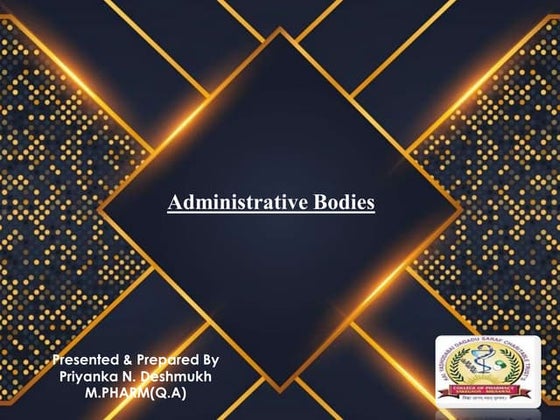SIS (┬®) psychometric properties AAIDD congress St.Paul (MN) june 9, 2011
- 1. SIS Supports Intensity Scale Psychometric properties Similarities and differences between original US version and Dutch, Italian, French and Spanish translations Wil Buntinx, PhD / FAAIDD Handout? Go to AAIDD post conference workshop www.buntinx.org St. Paul (MN) ŌĆō June 9, 2011 Central question: Is the SIS a reliable and valid psychometric tool across countries and cultures? Translating is not enough validity and reliability should be examined in representatieve groups for each language and culture. Standards for Educational and Psychological Testing , Washington: APA 1999 Is the SIS a valid and reliable instrument to assess supports intensity needs of persons with ID in other countries than the US? Translations considered: Dutch (Flanders-Belgium / the netherlands) Italian Spanish (Catalan) French (Canadian) 1
- 2. SIS relilability Internal consistency (╬▒) ŌĆō split-half ŌĆō SEM Dutch Standardization Flemish standardization USA 1 Italy Spain number split- split- SIS subscale of items ╬▒ SEM ╬▒ SEM ╬▒ ╬▒ ╬▒ half half Section 1 A 8 .95 .7 .97 .93 .8 .90 .95 0.96 .93 B 8 .96 .6 .96 .95 .7 .91 .95 .97 .97 C 9 .97 .5 .96 .95 .7 .84 .97 .97 .96 D 8 .96 .6 .92 .94 .7 .86 .97 .96 .95 E 8 .95 .7 .94 .92 .8 .86 .94 .95 .93 F 8 .97 .5 .97 .94 .7 .87 .96 .97 .95 SIS Index 49 .99 1,5 .98 .98 2,1 .91 .99 .99 .99 SIS reliability Test-retest - Inter-interviewer - Inter-respondent - client-staff Inter- Client- Test-retest Inter-interviewer staff respondent USA 1 Canad Spain USA 1 USA 2 Canad Spain USA 2 Canad Dutch SIS subscale section 1 A .87 .85 .98 .90 .80 .92 .86 .73 .88 .74 B .74 .77 .94 .68 .89 .82 .86 .91 .87 .58 C .75 .75 .93 .55 .88 .85 .71 .75 .87 .44 D .83 .75 .96 .55 .77 .90 .62 .93 .87 .31 E .86 .81 .90 .72 .96 .79 .71 .91 .91 .77 F .94 .68 .98 .60 .74 .79 .66 .87 .85 .51 SIS Index .82 .84 .94 .59 .88 .91 .80 .87 .82 .80 3 3 3 <1 <1 <1 <1 <1 <1 Interval weeks weeks weeks week week week week week week N 106 19 143 106 40 39 143 40 72 29 Effect of TRAINING interviewers ! Client ŌĆō staff respondent no training versus training correspondence 2
- 3. SIS psychometric characteristics ŌĆó Reliability summary Cronbach ╬▒ (int. consistency): .99 (all subscales ╬▒ > .93) Test-retest: .82 - .94 Inter-respondent: .82 - .87 Inter-interviewers: [.59] .80 - .91 Special case: correlation between client response and professional staff / parent responses when interviewing the client, always use more information sources in order to get a reliable estimate of intensity of supports need. SIS psychometric characteristics ŌĆó Validity Content validity content validity of translated SIS = similar to original (ŌĆśuniversal constructŌĆÖ of ŌĆśsupport needŌĆÖ) Criterion validity = independent judgment of intensity of needed supports On a 5 point Likert scale per domain and full section 1 scale 3
- 4. Criterion validity correlations between SIS scores and independent judgment of support need intensity by direct support staff SIS Independant Independent Independent Concurrent section 1 judgment judgment Judgment validity subscale staff staff staff ELIDA scale USA 1 Dutch pilot Spanish Flemish stand. study study group A .66 .79 .74 .86 B .51 .73 .71 .69 C .46 .81 .48 .55 D .59 .76 .68 .55 E .53 .81 .69 .69 F .62 .75 .69 .58 SIS Index .62 .83 .75 .74 N 106 101 352 4,211 Construct validity Subscale intercorrelations SIS Section 1 A B C D E F A B .84/.84/.50 C .57/.77/.43 .66/.85/.45 D .59/.73/.30 .62/.77/.34 .85/.82/.54 E .86/.85/.56 .84/.86/.52 .70/.85/.40 .71/.79/.48 F .70/.76/.46 .77/.85/.51 .77/.84/.51 .77/.82/.46 .82/.85/.51 SIS Index .86/.90/.60 .89/.94/.59 .86/.93/.62 .86/.89/.59 .93/.94/.62 .91/.93/.59 Dutch / Flemish study / American original study 4
- 5. Construct validity Correlation SIS ŌĆō VABS / ICAP SIS VABS total VABS total ICAP section 1 score score Score USA 1 NL/VL Spain A -.61 -.84 -.71 B -.57 -.76 -.72 C -.45 -.41 -.42 D -.48 -.42 -.61 E -.52 -.81 -.69 F -.49 -.65 -.69 SIS Index -.59 -.77 -.73 N 178 75 352 VABS: Vineland Adaptive Behavior Scale ICAP: Inventory for Client and Agency Planning Construct validity Correlations between SIS Section 1 subscales and age & gender (Spain) SUBSCALES Health Home Community Lifelong Social Employment And living living learning activities safety AGE 0.08 0.08 0.05 0.10 0.16 0.07 GENDER -0.06 0.00 -0.06 -0.06 0.01 -0.03 Correlations between SIS Section 1 subscales and gender in Dutch version is .00 (N=4,211) 5
- 6. Construct validity Distribution of SIS Index scores In 4.211 individuals with ID Dutch ŌĆō Flemish standardization 12.00 Group mean SIS Index 10.00 8.00 6.00 mild moderate severe profound Level of Intellectual Functioning Are traditional ŌĆślevels of functioningŌĆÖ a good indicator of support needs ???? Factor validity Spanish and Dutch factor analysis studies confirm 6 factor structure of section 1 Exploratory factor analysis in Section 1 also shows a solide 6 factor structure that corresponds with subscales A-F Extra finding: when section 2 is included in the factor analysis a 7 factor SIS is a also reliably demonstrated! Extra finding: in resource allocation tasks, a short form of the SIS (22 items) showed to be valid, reliable and useful (Bossaert et al., 2009; Kuppens et al., 2010; also Gomiero et al. 2011) 6
- 7. Conclusions The SIS fully maintains its (very) high internal consistency throughout all translations. Inter-interviewer / inter-respondent correspondences are ŌĆśgoodŌĆÖ. Construct validity = OK! / subscale intercorrelations are higher in translated versions (i.e. Dutch & Spanish studies) as compared to US. Small differences in averages and SD of SIS raw scores related to standardization sample characteristics? difficult to tell... A special international study would be welcome to see how these differences can be explained. So far, no independent (re)constructions of SIS in other cultures have been made. However, some test accreditation councils do stress this appraoch. A short form of SIS is likely to maintain all psychometric properties of full scale. Wil H.E. Buntinx Maastricht University The Netherlands Contact: w.buntinx@maastrichtuniversity.nl For international SIS basic training and SIS train-the-trainer courses, see: www.buntinx.org 7



![SIS psychometric characteristics
ŌĆó Reliability summary
Cronbach ╬▒ (int. consistency): .99
(all subscales ╬▒ > .93)
Test-retest: .82 - .94
Inter-respondent: .82 - .87
Inter-interviewers: [.59] .80 - .91
Special case: correlation between client
response and professional staff / parent responses
when interviewing the client, always use more
information sources in order to get a reliable estimate of
intensity of supports need.
SIS psychometric characteristics
ŌĆó Validity
Content validity
content validity of translated SIS = similar to original
(ŌĆśuniversal constructŌĆÖ of ŌĆśsupport needŌĆÖ)
Criterion validity = independent judgment of intensity of needed supports
On a 5 point Likert scale per domain and full section 1 scale
3](https://image.slidesharecdn.com/sispsychometrpropertiesaaiddstpauljune92011-158145129-110703144426-phpapp01/85/SIS-psychometric-properties-AAIDD-congress-St-Paul-MN-june-9-2011-3-320.jpg)











































